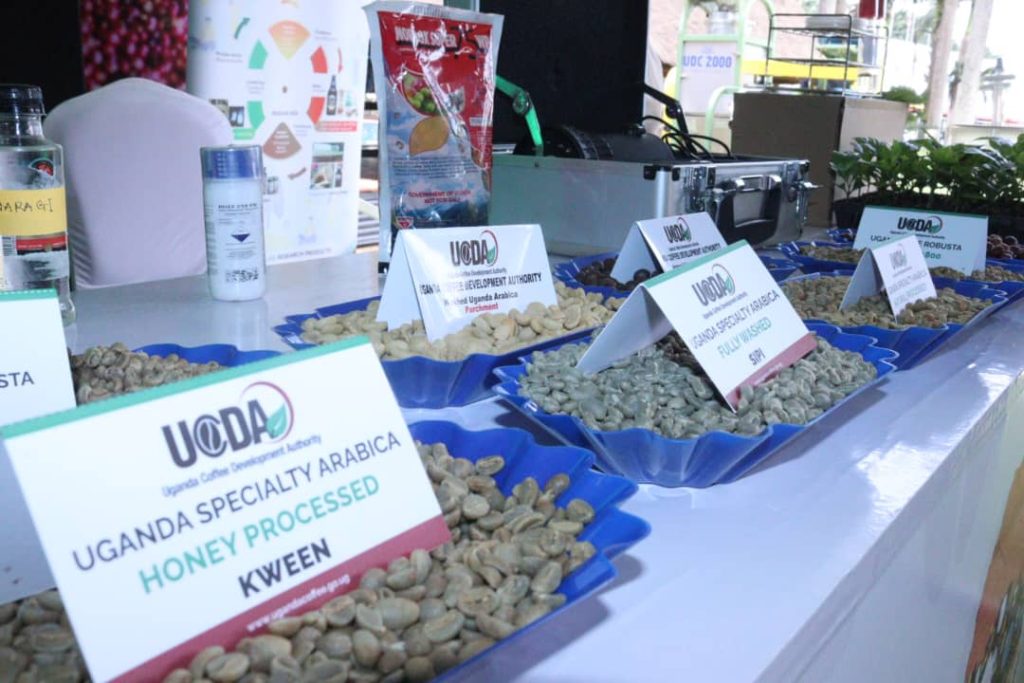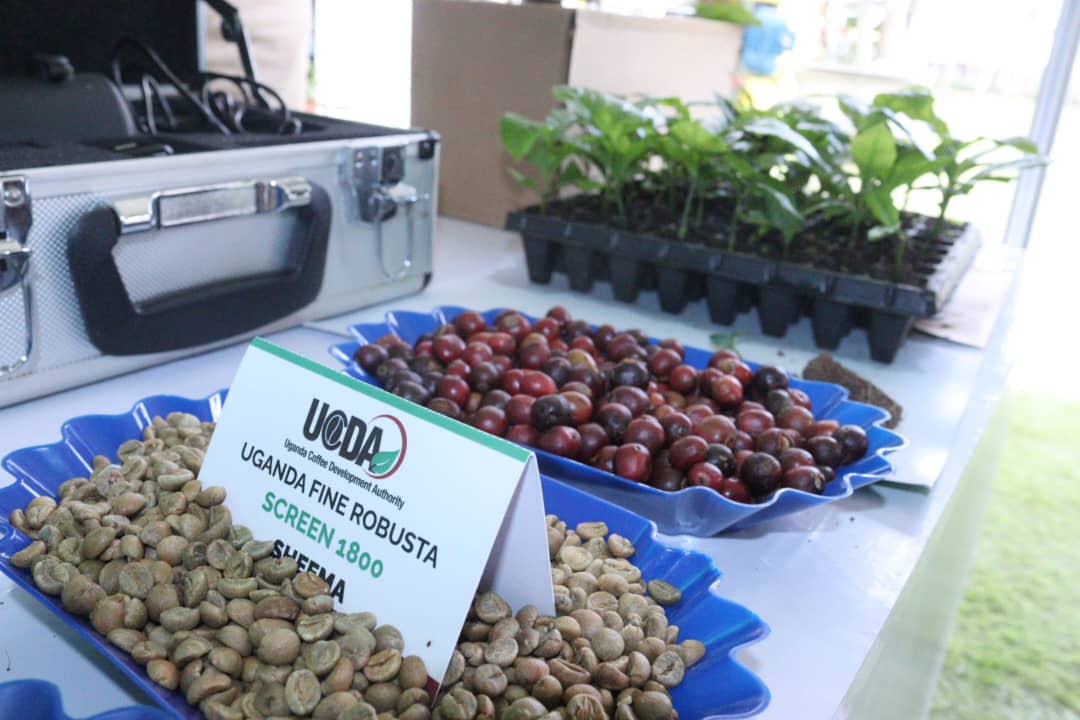In the past 12 months, Uganda’s coffee industry has achieved a historic milestone, marking a period of unparalleled success that has reached from the bustling urban centers to the remote rural villages of the country.
With the release of new data, the 2023/2024 financial year stands out as a landmark period for Uganda’s coffee sector, showcasing a remarkable increase in both export volume and value benefiting coffee farmers.
Recent statistics show that Uganda’s coffee exports soared to a record high in the 2023/2024 financial year. The country shipped a staggering 6.13 million bags of coffee, a notable 6.33% increase in volume compared to the 5.8 million bags exported during the 2022/2023 financial year.
Even more impressive is the 35.29% rise in export value, with Uganda’s coffee exports generating $1.14 billion compared $846 million recorded in FY 22/23—a milestone not seen in three decades. This unprecedented achievement highlights a year of exceptional growth for the coffee sector and signals a positive shift for farmers across the nation.
The Uganda Coffee Development Authority (UCDA) credits the sector’s remarkable performance to a series of effective regulatory measures aimed at improving coffee quality and boosting prices. According to a statement from UCDA, these advancements have led to the highest earnings for coffee farmers in 30 years.
“Due to effective regulation by UCDA coffee quality has resulted in high prices…Uganda coffee development authority is committed to working closely with all stakeholders to ensure a profitable and sustainable coffee industry,” the statement giving comparative insights on coffee exports reads in part.
Bank of Uganda State of the Economy report, released in June 2024, highlights a dramatic rise in Robusta coffee prices, which have nearly doubled over the past year to reach $4.23 per kilogram—levels not seen since the 1970s.
This surge is attributed to a combination of effective local regulations and external factors, including reduced coffee production from major coffee-exporting countries like Brazil, Vietnam, and Indonesia due to weather anomalies linked to El Niño, amidst robust global demand.
Looking ahead, Bank of Uganda projects that Robusta coffee prices are expected to rise by 33% in 2024, with a further 20% increase anticipated in 2025 as coffee supplies from these regions are expected to improve.
The growth in coffee export revenues has also had a significant impact on Uganda’s economy. According to the Bank of Uganda, the influx of coffee export earnings, along with inflows to Non-Governmental Organizations (NGOs), has strengthened the Ugandan shilling by offsetting domestic demand pressures from sectors such as manufacturing, energy, and trade.
Overall, Robusta coffee prices have been on a steady upward trend over the past few years. In October 2021, prices peaked at a ten-year high due to shipping container shortages, marking the sixth consecutive year of price increases.
For Uganda, this period was also noteworthy as the country exported a record 6.08 million coffee bags during the 2020-2021 financial year, which was also a recording breaking. Exports for FY20/21 were valued at $559 million, compared to $496 million for 5.11 million bags in FY19/20.
Fred Busulwa, a coffee farmer and Chairperson of the Masaka City Coffee Nursery Operators Association (MACCONA), couldn’t hide his smile as he reflected on the steady rise in coffee prices over the past three years, which has brought newfound hope to farmers.
“There has been a consistent trend of better coffee prices, and this is re-attracting farmers to the coffee sector. More coffee is now being cultivated here in Masaka and across the country, thanks to the promotional efforts by UCDA and Buganda Kingdom through the Emwanyi Terimba initiative,” he said.
Busulwa highlighted that this year, the price for a kilogram of Kase (ground coffee beans) reached 13,500 shillings. He also praised the role of farmer groups in keeping farmers informed about price fluctuations through updates from UCDA, which has helped protect them from exploitation.
“I hope that these good prices will remain stable for years to come as more people return to coffee farming. However, it is crucial that we maintain high quality standards to keep our coffee competitive in the market,” he emphasized.
Busulwa acknowledged that external factors, such as developments in major coffee-producing countries like Brazil, also play a role in price fluctuations. “We understand that better prices are influenced by global market trends, but if we ensure the quality of our coffee remains top-notch, we can still attract demand from those who have experienced our product. This is how we can conquer the market, increase production, and maintain high quality,” he concluded.
According to UCDA, Uganda’s coffee is enjoying unprecedented global demand due to its exceptional quality, putting the 2030 production targets outlined in the Coffee Roadmap within reach.
Signed into action by President Yoweri Kaguta Museveni in 2017, the Coffee Roadmap set ambitious goals for the industry, aiming to produce 20 million 60-kg bags of coffee by 2030 and generate $1.5 billion in annual foreign exchange earnings.
With the current growth trajectory, these targets are increasingly achievable. The roadmap’s vision focuses on expanding Uganda’s coffee sector, enhancing quality, and boosting export revenues to meet the financial goals set for the future.
About UCDA.
The Uganda Coffee Development Authority (UCDA) is a government agency established under the UCDA Act of 1991, later amended in 1994, and replaced by the National Coffee Act No. 17 of 2021.
Its main mission is to enhance the quality and productivity of Uganda’s coffee sector, focusing on value addition, effective marketing, and increased consumption. UCDA certifies all coffee exports, monitors global market price changes, and adjusts the indicative price daily to reflect these fluctuations.
Additionally, the Authority supervises the coffee sub-sector and provides expert advice on industry policies to the Government. It also organizes training for technicians, coffee processors, and quality controllers to ensure high standards throughout the coffee supply chain. Through these efforts, UCDA aims to strengthen Uganda’s coffee industry and support its growth in international markets.



